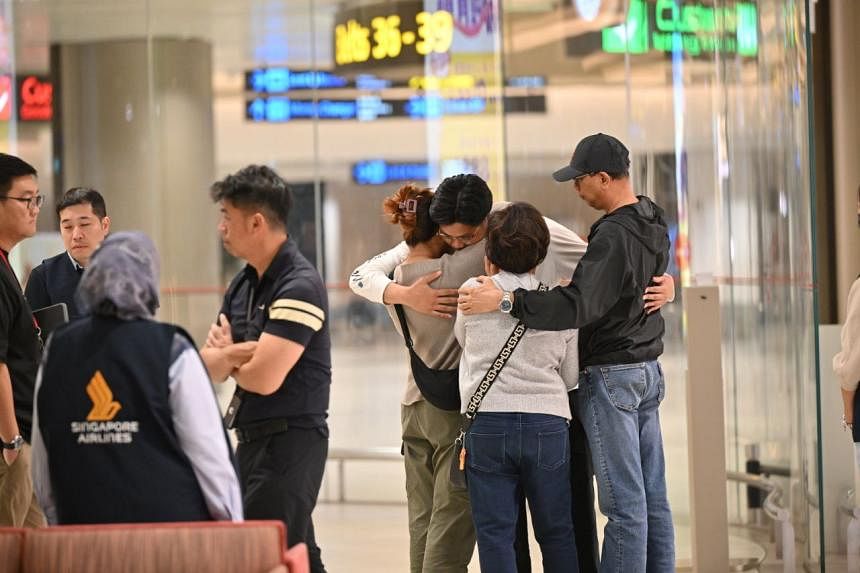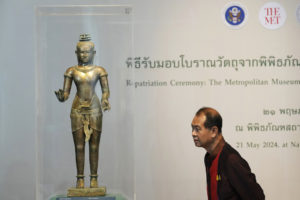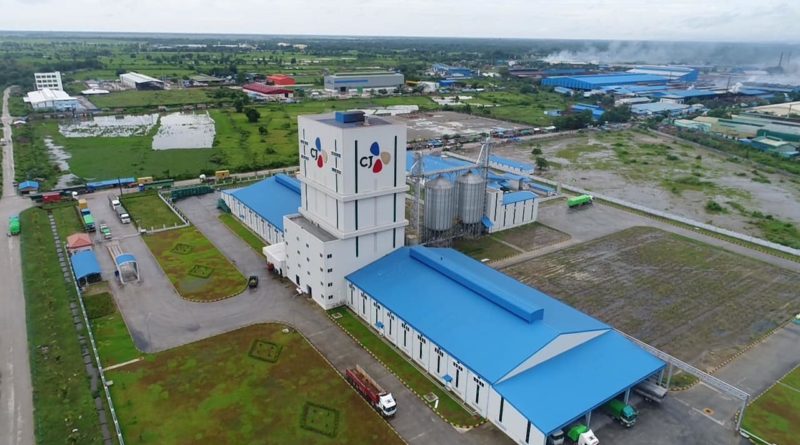ASEAN HEADLINE: MYANMAR: South Korean livestock feed company suspends multimillion dollar Myanmar operation
.
CAMBODIA: Cambodia tops emerging markets FDI index 2024

Cambodia has topped a recent global index produced by the UK-based business publication, fDi Intelligence. The nation ranked as the best emerging market worldwide for foreign investment in 2024.
Cambodia has taken the number one place in the 2024 index on account of its strong and consistent gross domestic product (GDP) growth, low inflation rate, and swift growth in the foreign direct investment (FDI) sector.
The fDi Intelligence emerging markets index also considers factors such as infrastructure development, policy incentives for investors, and the overall capabilities of cities and regions in attracting future inward commercial investment.
The fDi Intelligence emerging markets report surveys regions including Asia-Pacific, Europe, North America, Latin America and the Caribbean, Middle East and Africa, and BRICS nations.
According to the report, Cambodia, in first place, is on track for 6.1 percent GDP this year, with a low inflation rate of just 3 percent.
Meanwhile, Cambodia has seen a whopping 393 percent increase in FDI capital expenditure in-country, and 110 percent growth in new FDI projects.
The report also identified the country’s proactive state policy on foreign investment which has driven growth in FDI.
According to the report, the Cambodian government has implemented a host of conducive policies to ease foreign business startups, enhance commercial infrastructure, and generally provide suitable conditions for private investors
MYANMAR: South Korean livestock feed company suspends multimillion dollar Myanmar operation
…
The major producer of poultry feed is closing its Yangon factory, citing rising costs of raw materials and a shortage of labour
A South Korean company manufacturing animal feed in a Yangon industrial zone has announced that it will be suspending operations next week.
In a letter dated May 17, CJ Feed Myanmar Company Limited informed customers that its factory in Hmawbi Township’s Myaung Ta Kar Industrial Zone would shut its doors on May 28, citing increasing difficulties surrounding financial transactions, obtaining affordable raw materials, and maintaining a workforce.
“We will manufacture the feed only until May 28, and after that the factory will be temporarily closed. I don’t know how long [the closure] will last,” an official from CJ Feed Myanmar said.
A distributor based in Meiktila, Mandalay Region, told Myanmar Now that the company was once considered to be among the top local producers of feed for poultry, but speculated that sales had decreased in recent years.
“We stopped using their products when their. . .
SINGAPORE: SIA relief flight with passengers and crew members of SQ321 arrives in Singapore

SINGAPORE – Passengers who were on flight SQ321 arrived at Changi Airport Terminal 2 (T2) at about 5am on May 22, with almost all briskly escorted out of the baggage collection area by SIA staff.
There were hugs and some tears as they reunited with worried family members and loved ones. Airport staff or personnel wearing Singapore Airlines vests ushered them in an efficient and controlled manner to the arrival pick-up point, bus bay or T2 carpark.
Their uneventful departure from the airport was a stark contrast to the ordeal that the passengers had faced the day before, when SQ321 experienced sudden extreme turbulence over the Irrawaddy Basin about 10 hours after departing from London.
THAILAND: Thailand welcomes returned ancient statues
 Thai person looks at a standing Shiva sculpture from the 11th century during repatriation ceremony at National Museum in Bangkok, Thailand, Tuesday, May 21, 2024. PHOTO: AP
Thai person looks at a standing Shiva sculpture from the 11th century during repatriation ceremony at National Museum in Bangkok, Thailand, Tuesday, May 21, 2024. PHOTO: APBANGKOK (AP) — Thailand’s National Museum hosted a welcome-home ceremony Tuesday for two ancient statues that were illegally trafficked from Thailand by a British collector of antiquities and were returned from the collection of New York’s Metropolitan Museum of Art.
The objects — a tall bronze figure called the Standing Shiva or Golden Boy and a smaller sculpture called Kneeling Female — are thought to be around 1,000 years old.
This most recent repatriation of artwork comes as many museums in the US and Europe reckon with collections that contain objects looted from Asia, Africa and other places during centuries of colonialism or in times of upheaval.
The Metropolitan Museum had announced last December that it would return more than a dozen artefacts to Thailand and Cambodia after they were linked to the late Douglas Latchford, an art dealer and collector accused of running a huge antiquities trafficking network out of Southeast Asia.
He was indicted in the United States in 2019 for allegedly orchestrating a long-running scheme to sell looted Cambodian antiquities on the international art market. Latchford, who died the following year, had denied any involvement in smuggling.
Speaking at Tuesday’s ceremony, the Metropolitan’s curator of Asian and Southeast Asian art, John Guy, called the returned works “unrivalled masterpieces” of their period and said the handover was “a very meaningful moment to recognise the importance of the art of Thailand in world culture.”
“The Met initiated the return of these two objects after reviewing information and established that the works rightly belonged to the Kingdom of Thailand,” he said.
“This return followed the launch of the Metropolitan’s Cultural Property Initiative last year, an initiative driven by the Met’s commitment to the responsible collecting of antiquities and to the shared stewardship of the world’s cultural heritage,” Guy told his audience in Bangkok.
Thai Culture Minister Sudawan Wangsuphakijkosol expressed her country’s gratitude for the return of the items.
“These artefacts that Thailand has received from the Met are the national assets of all Thais,” she said.
Last month, the Metropolitan Museum signed a memorandum of understanding in New York with Thailand “formalising a shared commitment to collaborate on exchanges of art, expertise, and the display and study of Thai art.”
The statement also explained that the museum had recently tackled the controversial issue of cultural property and how it was obtained.
It said its measures include “a focused review of works in the collection; hiring provenance researchers to join the many researchers and curators already doing this work at the Museum; further engaging staff and trustees; and using The Met’s platform to support and contribute to public discourse on this topic.

@[email protected]


 Memento Maxima Digital Marketing
Memento Maxima Digital Marketing






